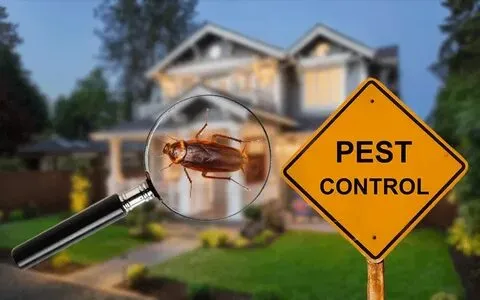
Pests can invade homes, gardens, and workplaces, causing damage and health risks. Knowing the types of pests, from small ants to big rats, is key to effective control. This guide covers common pests, the issues they cause, and ways to manage or eliminate them. Recognising the risks they bring is key. Take action to protect your space. This way, you can ensure a pest-free environment. We explore how you can prevent and handle these unwelcome guests.
Common Types of Pests and Their Impact
Ants
Ants are social insects that form large colonies. Carpenter ants can damage wood by tunnelling through it.
Why they’re troublesome:
- Food contamination: Ants invade kitchens and spoil food.
- Structural damage: Carpenter ants weaken wooden structures over time.
How to handle them:
- Clean countertops and store food in airtight containers.
- Seal cracks around doors and windows.
- Use natural deterrents like cinnamon or vinegar.
Cockroaches
Cockroaches thrive in warm, damp spaces. They can spread bacteria and trigger allergies.
Why they’re troublesome:
- Health risks: They spread diseases like bacterial infection and can respiratory condition.
- Unhygienic: They leave a musty odour and signal unsanitary conditions.
How to handle them:
- Remove food and water sources, like leaking pipes.
- Use gel bait traps in dark areas.
- Place bay leaves in cabinets to deter them.
Mice & Rats
Mice and rats can squeeze through small gaps to enter homes. They cause damage and spread diseases.
Why they’re troublesome:
- Health risks: They carry diseases like contaminated food.
- Property damage: They chew through wires and insulation, leading to costly repairs.
How to handle them:
- Seal entry points with steel wool.
- Use traps with peanut butter as bait.
- Store food in sealed containers.
Termites
Termites feed on cellulose and can silently damage wooden structures. They often go unnoticed until severe damage occurs.
Why they’re troublesome:
- Silent damage: They can harm your home’s foundation without detection.
- Expensive repairs: They cause billions in property damage each year.
How to handle them:
- Schedule annual inspections with pest control.
- Keep mulch and wood away from your foundation.
- Fix moisture issues to deter them.
Bed Bugs
Bed bugs are tiny insects that feed on human blood. They hide in mattress seams, furniture, or luggage.
Why they’re troublesome:
- Itchy bites: They leave red welts that cause discomfort.
- Mental stress: The idea of bugs in your bed can be unsettling.
How to handle them:
- Inspect hotel rooms and second-hand furniture before bringing them home.
- Wash travel clothes in hot water to kill any bedbugs.
- Call pest control for heat treatment if you suspect an infestation.
Mosquitoes
Mosquitoes ruin outdoor fun and spread diseases like malaria.
Why they’re troublesome:
- Disease transmission: They carry serious health risks.
- Annoying bites: Their bites cause itching and swelling.
How to handle them:
- Remove standing water to prevent breeding.
- Use repellent with DEET outdoors.
- Install screens on windows and doors.
Flies
Flies are drawn to decaying matter and can spread bacteria on food and surfaces.
Why they’re troublesome:
- Health risks: They can carry E. coli bacteria and salmonella infection.
- Annoyance: Their buzzing is irritating.
How to handle them:
- Keep trash cans sealed and dispose of rubbish regularly.
- Use fly screens on windows and doors.
- Set up DIY traps with apple cider vinegar and dish soap.
Spiders & Wasps
Most spiders help control pests, but some, like black widows, can be dangerous. Wasps can also sting when provoked.
Why they’re troublesome:
- Venomous bites/stings: Some can cause allergic reactions or severe pain.
- Fear factor: Many people fear spiders and wasps.
How to handle them:
- Clear clutter where spiders hide.
- Don’t swat at wasps; call a professional for nest removal.
- Plant mint or eucalyptus around your home to deter wasps.
How to Prevent Pests
- Seal entry points: Use weatherstripping, repair screens, and install door sweeps.
- Maintain cleanliness: Clean surfaces, sweep floors and take out the trash regularly.
- Fix moisture problems: Leaky pipes and damp areas attract pests. Keep your home dry.
- Go natural: Use diatomaceous earth or essential oils like peppermint for pest control.
Conclusion
Pests are a common problem, but you can control them with knowledge and action. Keep your home clean, seal entry points, and call for professional help when needed. Small actions such as sealing food containers and fixing leaks can significantly contribute to the prevention of infestations. Call a professional if you are busy and do not understand how to deal with pests. We at Yor-Pest Control provide many pest control services in York and all nearby areas.

